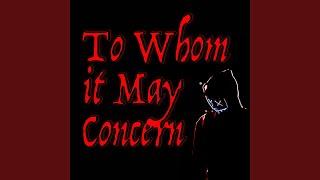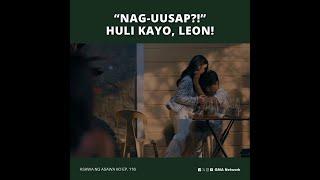Комментарии:

I could listen to you all day Samuel. Your so eloquent in describing complex issues.
Ответить
Thank you for answering my question (the last one). It has given me something to chew on...
Ответить
What do you think of composers today who write in historical styles? Is it necessary for a work to be "choronologically correct" (so to speak) to be worthy; or is a good piece a good piece -- period?
Ответить
excelent ¡
Ответить
Hey: long time listener/first time caller. Have you talked about A.I. yet? Does typing a prompt into Suno or Udio count as composition?
Ответить
My 2 cents on the question about influence vs. plagiarism...There's different ways to take inspiration. You can try as best you can to mimic the notes on the page or the musical end result if you will. And you can learn a lot that way but ultimately just because you can mimic the notes doesn't mean you can mimic the greatness of the original composer that made them so inspiring to begin with. Sometimes its better to be inspired by the spirit of the thing rather than the thing itself--it's not so much about mimicking other people's choices but understanding why they made those choices in the first place and in what context, and adapting the spirit of what they did in a way that resonates with you in your own context. So you can look up to your heroes and carry that forward even if your work doesn't directly resemble theirs at all.
Ответить
your the best
Ответить
What do you think of the 70s progressive rock bands like Genesis, King Crimson and Yes? I think it bridged the gaps between accessibility and the avant garde very successfuly but somehow we don't have this kind of music rn. It's either very uninterstingly accessible or totally unlistenable avant garde.
Ответить
My music has received little to no criticism, the most criticism was a dig at the quality of the recording and a squeaky piano stool, in actual fact they seemed to have something against the construction of the music.
Ответить
On #11, there's a distinction to be made between knowing theory and being educated as a listener. The latter, I think, is much more important for appreciating music, especially a lot of 20th-century music.
Ответить
I think its very unfortunate that the average person does not really understand the definition of improvisation and that they think it simply means just playing random music off the top of your head while they are playing an instrument. This is why I believe that most 'modern classical' musicians are just a cheap imitation of what jazz musicians do. You'll notice a lot of 'techniques' that modern classical musicians use are just about making strange noise on their instrument and have nothing to do with tonal theory. As to what improvisation actually means in regards to jazz, it actually means playing a song but giving the musicians leeway in how to interpret their parts in the song. There is usually always a base melody that a jazz tune works off of. Again, in contemporary classical this is usually just pre-planned noise and there is no real musical composition going on.
Ответить
What a massively articulate and eloquent overview. Bravo
Ответить
I guess most composers write the violin concerto as their music and then it is "corrected" by violinists to make it handy for the violinists. See, e.g., Brahms and Mendelssohn.
Ответить
Stravinsky retained the services of violinist Samuel Dushkin for advice on writing for the instrument in exchange for Dushkin first rights at premiering and recording the pieces (Violin Concerto, Serenade in A, ballet arrangements for piano and violin). In the Violin Concerto, Stravinsky showed Dushkin the multi-string-stopped chord that opens each movement, but was disheartened by Dushkin's assessment that it looked impossible to play. After their meeting, however, Dushkin tried the chord out at home and discovered that it was actually easy to play, and quickly relieved Stravinsky by contacting to tell him that the chord, a unifying element of the composition, was fine.
Ответить
As a fallen-away composition student myself (from 1972 to 1976), I think perfectionism and striving to be clever and original are serious dangers to the student. I think it is fine for students to learn by being bad, prolific, and stealing (as long as they are not yet publishing the result). We know that Bach had access to a library where he learned Italian style writing by copying and re-arranging works of Vivaldi. I also have the sense that even Stravinsky started out without really knowing what he wanted to eventually write, but became competent enough to capture what his ear told him when original ideas finally appeared (at age 28). I know a famous writer who started out by being severely criticized for writing "bad poetry" by his English teacher in high school. Severely discouraged, he showed his work to his hero, Ray Bradbury, at a school event, and after reading them, all Bradbury asked was "did you love writing this?" After the would-be writer answered "yes!" Bradbury said " then keep writing thousands more until you find your voice." The writer (who has written for Star Trek and Tyson's "Cosmos" TV series), then wondered why his English teacher couldn't have been as encouraging.
Ответить
Very informative, encouraging, and helpful, as always. As a non-professional musician, my day job does a good job forcing me to focus on only the art that is most important to me, which is helpful.
Ответить
Great video as always. As a bassist I love Lighting Up and plan on playing it in the future!
Ответить
What if a composer's strong desire was to know that people enjoyed listening to their music? (though you have to write what you find most important, no ruining things for improving your chances with having others like it) What would be a good path to send people to your music on social media?
Lets say, narrow it down to 2 4 movement CDs, Spirit Melody 1 and Spirit Melody 2?
Is it sick to be so happy about others enjoying your productions? Har har har!
That was a really fun video, it really helps to have an audience ask such very good questions. They never really stump you though!!

To me improvisation and composition are equal; not one over the other. Also, each aspires to the other's state?
Ответить
Regarding the first question, improvising while composing doesn't necessarily mean you have to play an actual musical instrument - you could use any other tools /systems that allow for certain amount of indeterminacy or even randomness, so you could react to what the tool is providing in a creative way, which could be also considered a form of improvisation. Maybe you're familiar with a very relevant paper by Katya Davisson called "Improvisation as a Method of Composition: Reconciling the Dichotomy" - it rises some interesting points regarding the relation between composition and improvisation. Nevertheless, it's always refreshing and inspiring to listen to your thoughts.
Ответить
Excellent answers. Too many for me to comment on. What ways do you use away from the piano or score paper to inspire creativity? I use nature. Taking walks without teck as an example.
Ответить
Inspiring!
Ответить
This comment is intended primarily for classical composers - and of course is personal - but the several years I spent intensively going through Johann Joseph Fux's "Gradus ad Parnassum" and mastering species counterpoint were the best investment in time and effort I could have ever made. There's a lot more to an effective composition than that, but that provided the basic grounding skillset.
Ответить
Thanks for bringing up the modernism/post-modernism confusion. I find that the opposite happens especially in visual arts: viewers will call some vapid piece of post-modernism as "modern art." Would love to see a video in which fleshes out the meanings of these two terms.
Ответить
Amazing video, really insightful. Congratulations and thank you very much
Ответить
Me encantaría que tus videos tuviesen subtítulos en español.
Ответить
Really an overall good talk :almost a primer on how to be a valid, self-realized composer. I love what he says about all us individually contributing to a giant palimpsesthuman. And how he explains originality &the roots of invention . Very clear discussion so rare at this level with hustorians,critics etc. And yes it's annoying and sad that people don't know or get the differences in periods (modernism,post-modernism).
Ответить
Wow! An informed and logical view of music today. How refreshing.😊
Ответить
I think the comment about the Chopin etude op 10 no 1 is a bit misdirected, lots of similar things are quite easy (for instance the op 10 no 8 arpeggios) but the waterfall is very difficult because you have to stretch the hand in quite awkward ways, without proper technique it could damage the hand and so on, it's not the usual movements. So I would say it's actually harder than it sounds, there are still worse things of course. A better example from simple and impressive gestures which is easy to play would be the op 25 no 12
Ответить
re: finding your voice, and when does a valid use of traditional techniques become plagiarism... I heard there'd been a criticism of Stravinsky's Movements for Piano and Orchestra which had said that that bit where quavers become triplets, become semi-quavers, become a quintuplet... (or whatever it was, you get the idea,) was on the point of plagiarism because some other composer had used that motif recently. Then Craft (or someone, probably Craft I guess,) refuted that by saying that it was a technique/motif/idea as old as music itself, and quoted examples from Renaissance times (or prior.) I tend to agree with the defence. Full disclosure: I love Stravinsky's work. But still, anyone who'd never even heard music before could come up with that, right? The point, for the composer, is, does it work in context? In my personal opinion it does in that case. Then again, I've listened to Movements like a million times, so it would feel "right" to me now...
Ответить
When I first started singing, after being a classical guitarist for many years, I was quite timid of the project and received lots of.... shall we say.... correction.
Ответить
In jazz improvisation, you really aren't doing it properly until you start learning some of the vocabulary and concepts of actual jazz players and having a convincing sound in the idiom. Improv is only as good as the vocabulary you internalize, assimilate, build upon.
Ответить
Of course as to the question about African music, sometimes when Westerners incorporate elements of African music they may be called out for appropriating the music...I think I've seen some videos about this...David Bruce and Adam Neely. Interesting question.
Ответить
Last question. Great answer, Sam.
Ответить
Has anyone already told you that you look exactly like the dark haired version of Dr. Wilson from the Dr. House TV series?
Ответить
Your response to the last question was sublimely insightful and philosophical, thanks Samuel 🎵🎶
Ответить
Would love to see you do an interview with Dewa Alit, or Wayan Sudirana.
Ответить
Are you familiar with Composer Barnaby Martin's channel 'Listening In' ? There are many overlaps in the material covered, though your channels both have very different stylistic approaches. I would love to see a conversation between the both of you.
Ответить
Actually I think it would help some of us if you rattled off the obvious examples of composers who were not great at playing instruments but created great music.
Ответить
"You can't necessarily choose to say 'I'm going to work in this direction because it will be good for my career'" -- but a lot of new-music and electronic-music conference concerts are full of pieces that sound just like that
Ответить
I'm sure you said likely some good things here, but not seeing a chapter that obviously aligns to the question in the clickbait title, I have no interest in listening to find out. I'll be sure to steer clear of your channel in the future.
Ответить
You're doing the Lord's work. Thank you.
Ответить
You rightly labeled me old and grouchy. My views on modern music were formed when I was forced to learn about and listen to the stuff when I was 20. I made a commitment to myself to avoid criticizing unless I had a way of positively changing the situation. To that end, I and my wife, Marianne Ploger, wrote an essay titled: The Craft of Musical Communication in which we articulated the 11 specific techniques used by the greatest musicians and composers that accounted for their success in communicating with listeners. During a musical communication workshop years ago, I was giving the Jazz Ensemble students suggestions designed to help them "get into the zone" in order to infuse liveliness into their music making. The suggestions were simple enough to both understand and apply. The result blew their minds so to speak. In the feedback from the students I was told that they learned more in an hour and a half from me than they learned over a two week residency they previously experienced with a famous jazz musician a month or two earlier.
The problems in both performance and composition stem from ignorance of how human beings perceive and process heard experiences. These musical communication techniques are all found in either pre-19th century treatises or prefaces by composers from the 16 to the 19th century printed collections of their music for how to play their pieces, or from recent perceptual and cognitive science.
The most pervasive error made by musicians, performers, composers, etc. is in not paying attention to how listeners are responding to what they are hearing. Normal ordinary listeners are extremely smart and knowledgeable about what they like and do not like but don't have the language needed to articulate that knowledge in a systematic meaningful manner. When provided with the words and (more importantly) the attitude that they actually know how to change performances or pieces into music that "works" for them, they suddenly become very forthcoming and scientific in guiding musicians to communicate effectively with them. We need to listen to listeners!!!!!!!

Great content as always! Thank you
Ответить
What is the worst criticism you’ve ever received, and how did you deal with it? Let me know!
Ответить



![[Devpass Talks] How to use Auto Layout in iOS Apps (Emmanuel Okwara) [Devpass Talks] How to use Auto Layout in iOS Apps (Emmanuel Okwara)](https://invideo.cc/img/upload/MERTQTA5M1lHLVE.jpg)






















